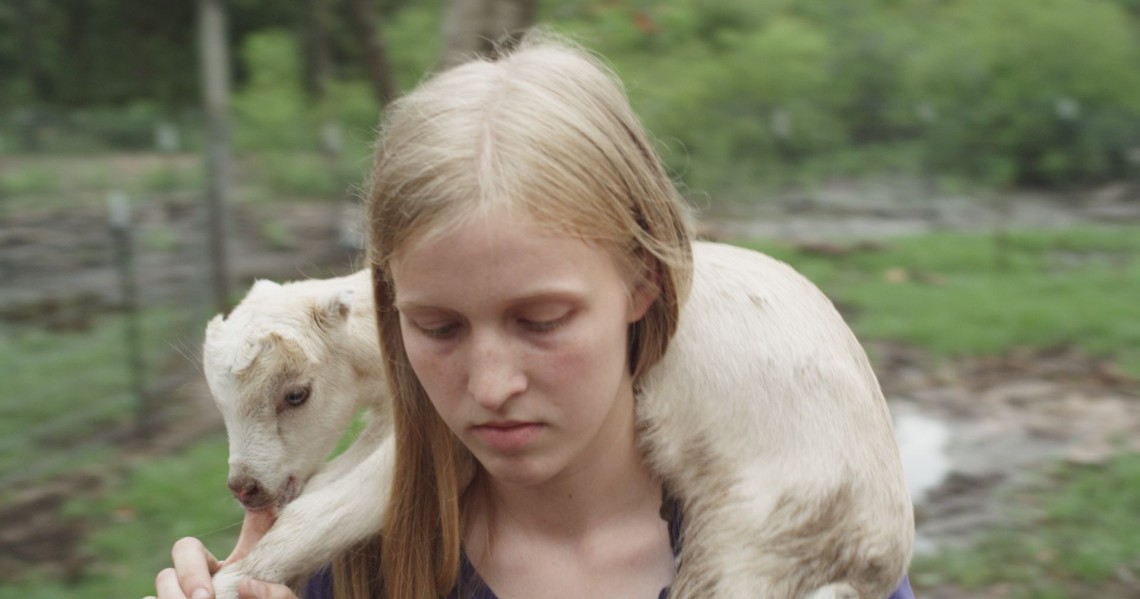Stop the Pounding Heart, the latest feature by independent director Roberto Minervini, focuses on Sara, a 14-year old girl living in the heart of America, where bull riding is the pastime of choice and the Confederate flag can still be freely waved. She’s one of twelve children in a devoutly Christian family. The parents, goat farmers, home-school their kids, teaching them passages from the Bible. Sara and her family are all real people, playing slightly fictionalized versions of themselves in this loosely constructed story of their lives, where fact and fiction blend not to tell the story of her life, but rather to allow the audience to spend some time in her house. Short on expositions and heavily reliant on conveying the atmosphere through its vérité style, pale color palette, and a shaking, roving camera, Heart is a keen study of this teenage girl’s gradual, quiet grappling with doubt and her struggle to come to terms with her womanhood despite her religion.
Despite her small frame, Sara is quite powerful in the farm, easily capable of handling the goats and her younger siblings on her own. Her physical assuredness betrays no signs of her increasingly shaky beliefs. When she crosses paths with Colby, a local bull-running enthusiast, the seeds of attraction are sewn in her heart. There are subtle signs of a budding romance between them, but neither is free enough of inhibitions to act on desire. Sara hears her mother’s voice in her head more pronounced than ever, warning her off “dating only for fun.” The documentary elements of the film, at certain points indistinguishable from fiction, are particularly intriguing in these sequences, lending Heart an eerily hyper-real quality. Minervini directly incorporates elements of conversations about faith and its role in the life of an adolescent Christian, making their impact on Sara’s psyche palpable. The religious deterrence of fun, juxtaposed with Sara’s struggle to enjoy seemingly innocent acts like watching bull-riding, make for a compelling observation on the effects of faith in everyday life.
Minervini chooses not to burden his study with a plot. His camera follows Sara around the farm, on long walks in the nature, giving a sense of struggle and repetition that runs through her life. The few significant plot points and instances of dialogue exist perfectly within the mundane, passing progression of Sara’s life. One particularly remarkable sequence is a conversation between Sara and two other girls, debating their ambitions and plans for marriage and their “duties” to men according to Scripture, subtly indicting the inherent sexism in Christianity. There’s an intense sense of immediacy to the film – familiar to this viewer’s experience of growing up in a religious community – but, crucially, no sense of dramatized importance within any individual scene, making Heart all the more challenging. The non-professional acting, too, helps render the film more authentic; the performers’ awareness of the camera lends their performances a sense of discomfort that beautifully blurs the line between documentary and fiction. Stop the Pounding Heart is at once restrained and tactile, the work of a silently observant filmmaker who is as compassionate as he is critical. The likes of this subtle religious study are all too rare in modern American cinema.




















